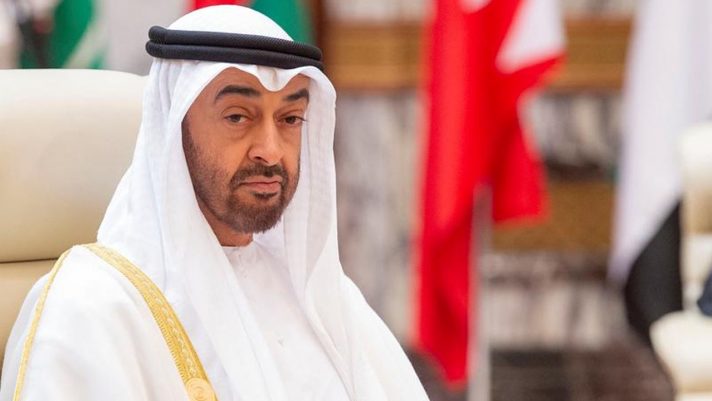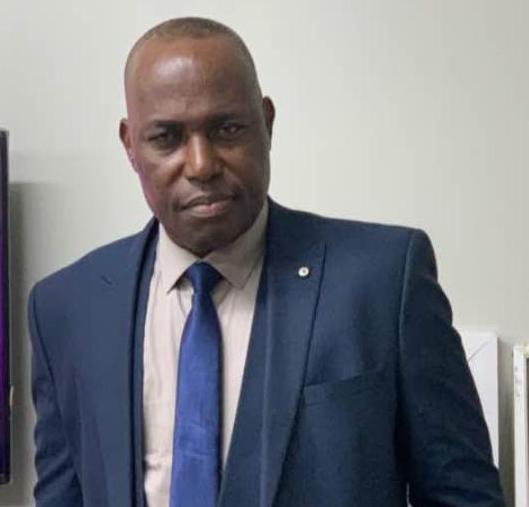Because our leaders live by bread alone – Part 2, By Martins Oloja

FILE PHOTO: Abu Dhabi’s Crown Prince Sheikh Mohammed bin Zayed al-Nahyan attends the Gulf Cooperation Council (GCC) summit in Mecca, Saudi Arabia May 30, 2019. Picture taken May 30, 2019. Bandar Algaloud/Courtesy of Saudi Royal Court/Handout via
(Still On Sheikh Zayed)
Let’s continue with the study of the biographies of great men who didn’t live by bread alone as I was saying. The story of Sheikh Zayed should not be disrupted by space constraint. It is great story of a significant statesman whose integrity laid the foundation of what UAE has remarkably become. We read last week that: In 1952, just when he needed every rupee he could lay his hands on to feed and clothe his own family, the Saudis offered him (Zayed) forty two million dollars to give up his fight against them and their claim on Buraimi. It was an astounding amount of money – overwhelming to Sheikh Zayed who scarcely had one hundred rupees in his pocket at the time and less than a week’s supply of food in his palace. But because he believed in what he was doing and because he is a selfless man, he turned the bribe down proudly. He told the Saudis he did not want their money: he was interested only in the welfare of his people and his homeland. No amount of money could buy his loyalty or change his determination to achieve a peaceful settlement giving the people of Abu Dhabi what was rightfully theirs. The bribe was so incredible that it was registered in the ‘Guinness Book of World Records’ as the highest ever offered to anyone in the world….
According to Mohammed Al-Fahim, in ‘FROM RAGS TO RICHES: A STORY OF ABU DHABI: The British, who were central to getting oil in Zayed’s land exported, wanted to see a solid economic foundation in place for the continued exploitation of the vast resources. They wanted development too because they needed it to make the oil industry work properly and profitably. Growth of the oil industry could only be achieved with more qualified staff, better housing, better roads, water resources, electricity, a business community, the list was almost endless. With the then Ruler’s continued resistance to implement change, the pressure intensified on Sheikh Zayed, his brothers and the ruling family to initiate the development process. At the time, neighbouring sheikhdoms and countries including Dubai, Qatar, Bahrain and Saudi Arabia knew what kind of revenues were being generated in Abu Dhabi as a result of the oil industry. They were astonished that nothing was being done with the proceeds. Of course, it was to their advantage for Abu Dhabi to stay as it was: no development there meant people would continue to turn to them for goods and services. They could not believe their good fortune.
Meanwhile, any one of the neighbours might have successfully claimed rights on Abu Dhabi territories because the defences were weak and the loyalty of the tribes was wavering as the government did little to improve their lot. Had any one of them initiated such a claim the rest would have followed suit and it could well have been a free-for-all with Abu Dhabi being carved up into chunks and divided between its neighbours. Even the thought of this potentiality was completely unacceptable to Sheikh Zayed. He was a fiercely patriotic man who loved his country and its people above all else. He took up arms at the age of fourteen to fight against tribes who were infringing on the territory of Abu Dhabi. He fought against neighbouring countries that claimed their lands. Later, in the 1950s, he used his charm and diplomatic skills to inspire loyalty from the various tribes throughout the eastern area. He negotiated with the British on the one hand and with the Saudis on the other.
When the oil revenues began pouring in, he was the one the people turned to for development initiative. Unfortunately, he lacked the financial resources as well as the power to start the process, much as he would have liked to. He was the youngest of four brothers, and the eldest was the Ruler. True, he was an accomplished diplomat with a lot of common sense and a charismatic personality. He also had some influence with his elder brother whom he could sometimes sway or prevail upon to see things differently. But he was not the Ruler. So, he remained frustrated by his inability to effect changes that he thought were crucial to the long-term wellbeing of his country, and his countrymen. His frustration mounted throughout the early and mid-1960s. At the same time, he came under increasing pressure to act – from the people of Abu Dhabi, the ruling family itself, the British, and from the intensity of his own convictions. By 1964, the pressure grew so much that he could no longer stand by accepting the status quo, as the revenues from the oil exports accumulated tremendously. Sheikh Zayed felt it was his duty to act.
Over the next eighteen months he rallied the ruling family around him, including his brothers and cousins who agreed that the situation could not continue as it was, and, with the help of the British, a change in the rulership was effected on August 6, 1966. On that memorable day, Sheikh Zayed became the Ruler of Abu Dhabi. The former ruler went to Bahrain, then to Iran and finally to Lebanon where he lived for many years.
Starting From Scratch
BECAUSE his efforts had been frustrated for so long, particularly in the four years (prior to his administration), Sheikh Zayed began his rule with an unprecedented goodwill. Then an amazing transformation began. As soon as he was in control, Sheikh Zayed began taking steps that would bring Abu Dhabi out of the dark ages. The task was enormous. First, he needed to put together a strong bureaucracy because nothing existed at the time. He started from scratch, building the government department by department: water and electricity, finance, municipal planning, police, defence, communication, internal affairs, external affairs, protocol, health, education, judiciary and more. Here was a man who had never been to school, a man who had lived a nomadic (Bedouin) life since his youth. Yet he conceived and implemented the ideas that would be the foundation of the entire infrastructure of modern day Abu Dhabi/UAE. Naturally, he had to rely on expatriate expertise to a large extent because the local population was simply not qualified then to complete the tasks needed. Without functional schools, most people were still uneducated. So most of the people who ran the government departments initially were brought from elsewhere, seconded from other Arab countries or hired from abroad for their skills. Setting up the framework for the government consumed the first two years of Sheikh Zayed’s rule. But that certainly did not mean that nothing else happened during that time. On the contrary, he was actually implementing some of the development plans as the departments were being formed. With the help of his extended family and knowledgeable Abu Dhabians, he began executing development plans without delay.
The Iconic Lee Kuan Yew Of Singapore
Joseph Nye, the Harvard University political scientist who coined the terms ‘soft power’ and ‘smart power,’ once described Lee Kuan Yew as a man “who never stops thinking, never stops looking ahead with larger visions. His views are sought by respected senior statesmen on all continents.” Leaders sought out Lee for his vision and his grasp of geopolitics, but his power came from his achievement. He turned a mosquito swamp (Singapore) into a first world nation in a single generation. The legend, Yew was also a powerful communicator, putting across his thoughts in a simple, clear and precise manner. His two-volume memoir (The Singapore Story and From Third World to First) as well as his speeches and interviews offer an engaging master class in governance.
His clear vision: Since Singapore separated from Malaysia in 1965 — an event Mr. Lee called his “moment of anguish” — he had seen himself in a never-ending struggle to overcome the nation’s lack of natural resources, a potentially hostile international environment and a volatile ethnic mix of Chinese, Malays and Indians.
“To begin with, we don’t have the ingredients of a nation, the elementary factors: a homogeneous population, common language, common culture and common destiny. So, history is a long time. I’ve done my bit.”
His resilience and tenacity: Lee had gone through his toughest period when Malaysia chose to separate itself from Singapore. His shedding tears on public television marked one of the most historic moments in Singapore history. However, he never gave up, strengthened his resolve and continued to believe that he could develop Singapore into what he envisioned it to be.
His innovative approach: Zainuddin M. Z, an Indonesian scholar pays tribute to Lee’s strength of character, saying he did not waste his time moping over the separation but instead drew strength from it to create his vision of a Singapore that is “better and stronger” than Malaysia. He says Lee realised that vision by making sure that Singapore achieved developed-nation status before Malaysia would. He credits this to Lee’s creativity and innovative spirit. The scholar adds: “Lee succeeded in developing a strong new nation that transcends the divisions of race and religion. Not only did he suppress Malay communalism but he killed the racial institutions of the Chinese, including Chinese schools and colleges, and he wiped out their secret societies.
His Incorruptible Nature:
This played a big part in shaping Singapore into one of the least corrupt countries in the world. “He presented to the world a Singapore that is clean, efficient and trustworthy) under an administration that is tough against corruption and scandal.”(NYT, 2015 when he died). In a policy intended to remove the temptation for corruption, Singapore linked the salaries of ministers, judges and top civil servants to those of leading professionals in the private sector, making them some of the highest-paid government officials in the world.
Doubtless, LKY was able to lead his one city country from ‘Third To First World’ because he never attempted to live by bread alone. He lived and died for his country. Let all our aspirants to high offices and public servants in Nigeria read the biographies of the two great men here for re-orientation on how to rebuild the broken walls in Africa’s most populous country and indeed the hope of the black race!
Culled from The Guardian




